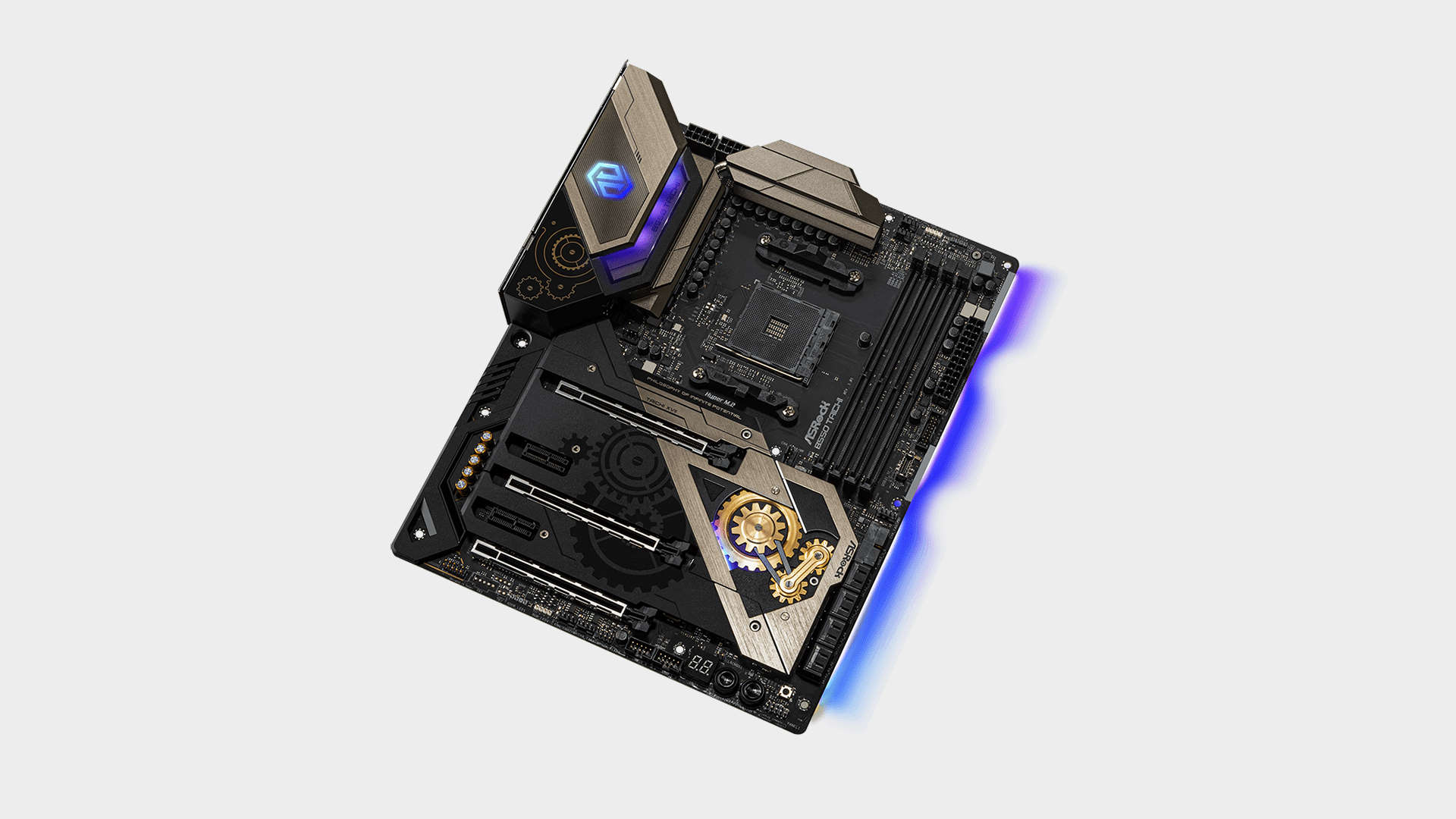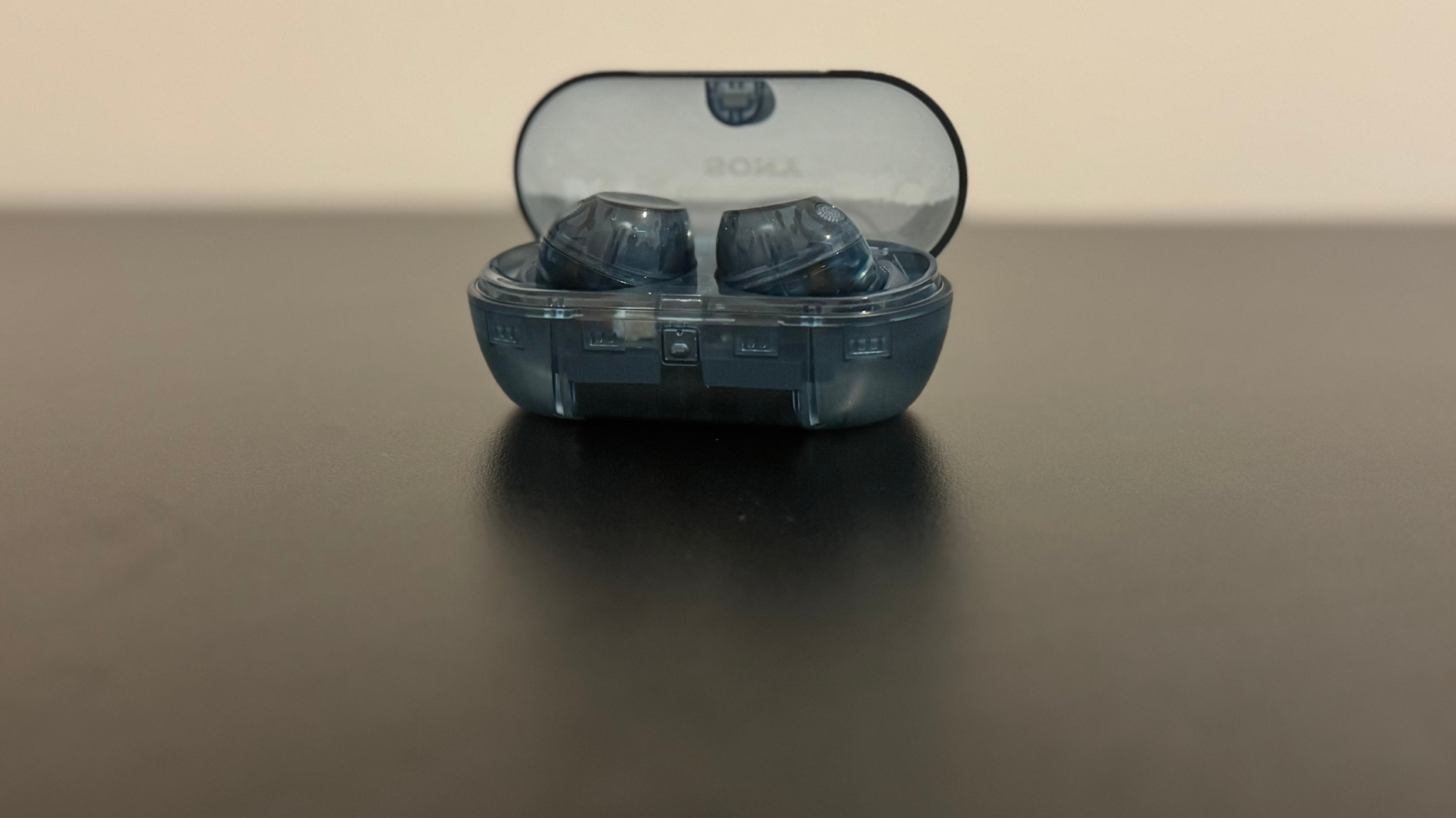Our Verdict
Megabucks for a B550 board this may be, but it's beautifully built and only suffers very slightly from the chipset's limitations compared to the X570 alternative.
For
- Built to survive a bomb blast
- Great performance
- Strong feature set
Against
- Very expensive
- B550 chipset a little short on bandwidth
- Overclocking can be laborious
PC Gamer's got your back
That’s correct, sports fans. You read it right. This is a $300 AMD B550 board. Of course, the Asrock B550 Taichi is not the first painfully pricey B550 motherboard that’s landed in the PC Gamer labs. That honour goes to the Asus ROG Strix B550-E Gaming. But it is conspicuous that, at the time of writing, you can actually get ASRock’s own X570 Taichi board for less money. Yikes.
As we’ve explained before, the B550 chipset doesn’t actually lose out all that much in terms of the raw specs compared with AMD's top-end X570 chipset. The main difference involves the interface between the CPU and PCH chip at the heart of the silicon. For the B550, that’s delivered courtesy of a quartet of Gen 3 PCI Express lanes.
The X570’s interface is quad-lane, too, but via the Gen 4 PCI Express standard and thus offers double the bandwidth. The most immediate and obvious consequence involves storage. The B550 still supports PCIe 4.0 directly into the CPU. So, that’s 16 lanes for graphics and a further four to support an M.2 drive. However, where the X570 can handle a second PCIe 4.0 M.2 SSD slung off the PCH, thanks to the aforementioned interface, the B550’s second M.2 socket is limited to PCIe 3.0 speeds. Oh, the humanity.
There are other bandwidth relevant limitations versus the X570, for instance in the USB department. But the B550 still offers up to two USB 3.1 G2 ports, something its B450 predecessor couldn’t manage. As a new chipset, the B550 also offers support for both AMD’s latest Ryzen 3000 CPUs and upcoming processors based on the Zen 3 architecture, out later this year and likely to be branded Ryzen 4000. In other words, you’re nicely future-proofed with any B550 board.
Chipset - AMD B550
Socket - AM4
CPU compatibility - AMD Ryzen 3000
Form factor - ATX
Expansion slots - 2x PCIe 4.0 x16, 1x PCIe 3.0 x4
Storage - 2x M.2, 8x SATA 6Gbps
Networking - Intel WiFi 6, Intel 2.5Gb ethernet, Bluetooth 5.1
Rear USB - 2 x USB 3.1 Gen 2, 4 x USB 3.1 Gen 1, 2x USB 2.0
Extras - Debug display, Asrock Polychrome RGB lighting
If that’s the broader B550 proposition and its relatively modest limitations covered off, what to make of this board in particular? It’s a member of ASRock’s premium Taichi range, and therefore built like the proverbial ceramic outbuilding catering specifically for bowel movements. That includes large slabs of metal topside for everything from the M.2 heat spreaders to the VRM cooling. Several of those components are held down by hex screws, for which ASRock provides a handy driver. And that only adds to the sense of a board built to sustain a bomb blast.
There’s even metal more on the reverse in the form of bracing plates, making for a seriously solid and rigid motherboard. You are not going to have any problems with this board buckling from heat build up, that’s for sure. In terms of the electricals, it’s a pretty high quality affair. There’s a 16-phase VRM, albeit powered by a doubled-up Intersil ISL229004 8-phase controller, and ALC1220 Realtek audio with both Nichicon gold caps and good isolation from the rest of the board.
Elsewhere, this board is basically loaded. Unusually for a B550, there are eight SATA ports, four provided by the chipset, another four by an ASMedia ASM1061 controller. Graphics-wise, there are three PCIe x16 slots. Strictly speaking, three-way AMD Crossfire is supported, but in the highly unlikely event you plan to run three AMD GPUs, note the third port is limited to four PCIe 3.0 lanes.
Networking is pretty much top drawer, too, thanks to WiFi 6, Intel 2.5Gb ethernet and Bluetooth 5.1. You also get configurable ASRock Polychrome RGB lighting, a dual-digit debug display, physical power and reset switches, and an easy-access Clear CMOS button for when you’ve overcooked the overclocking settings... more on which in a moment.

Gaming performance
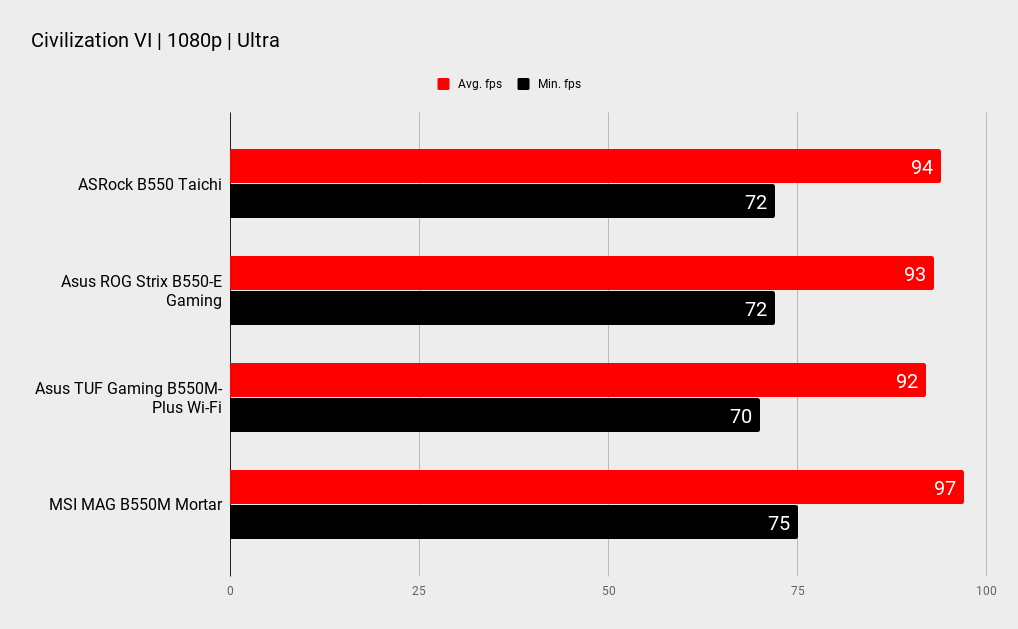
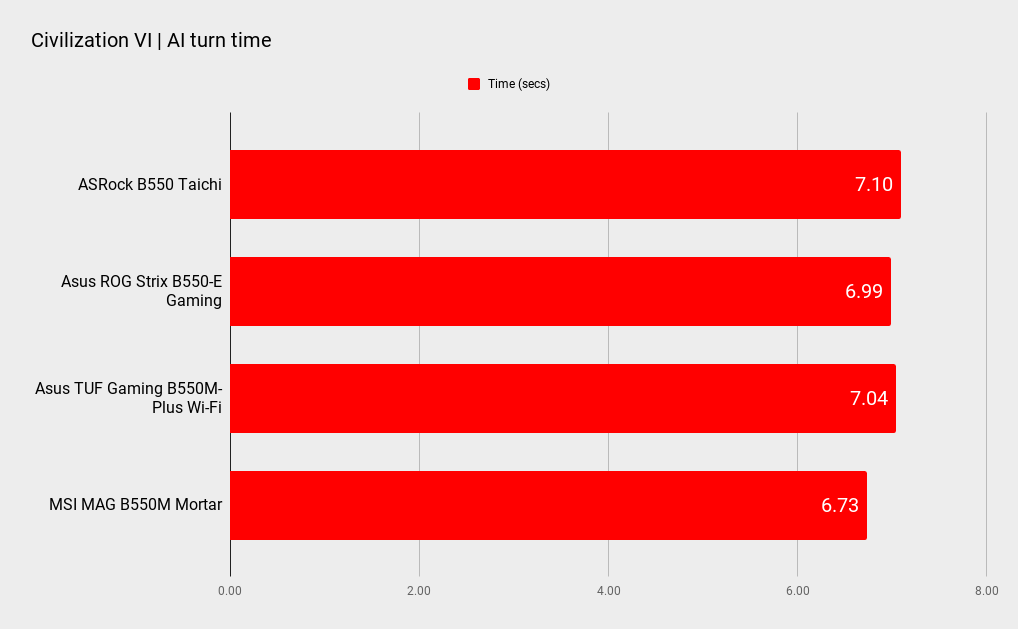
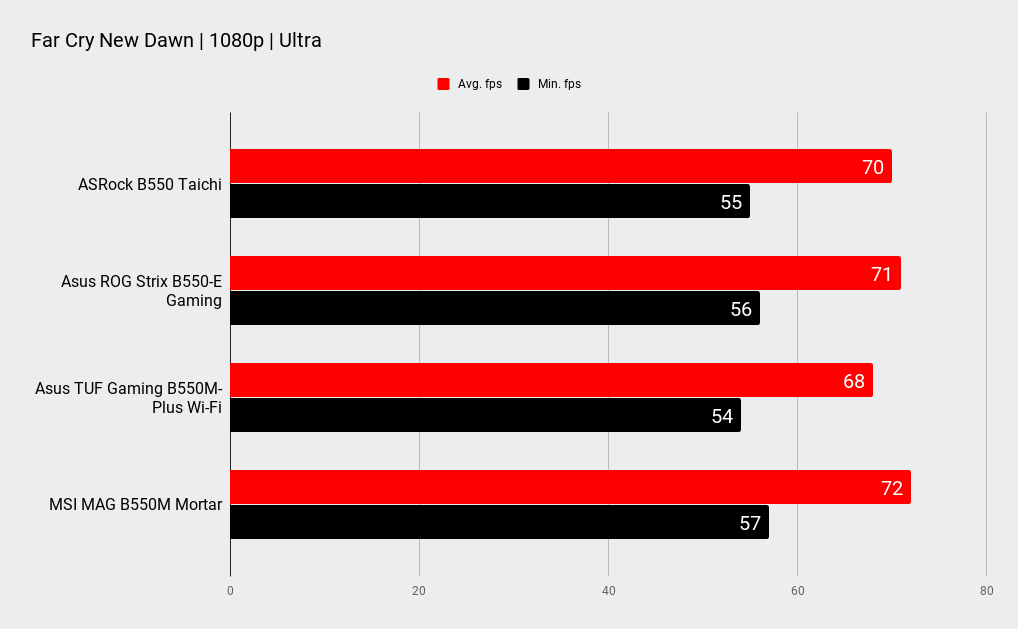
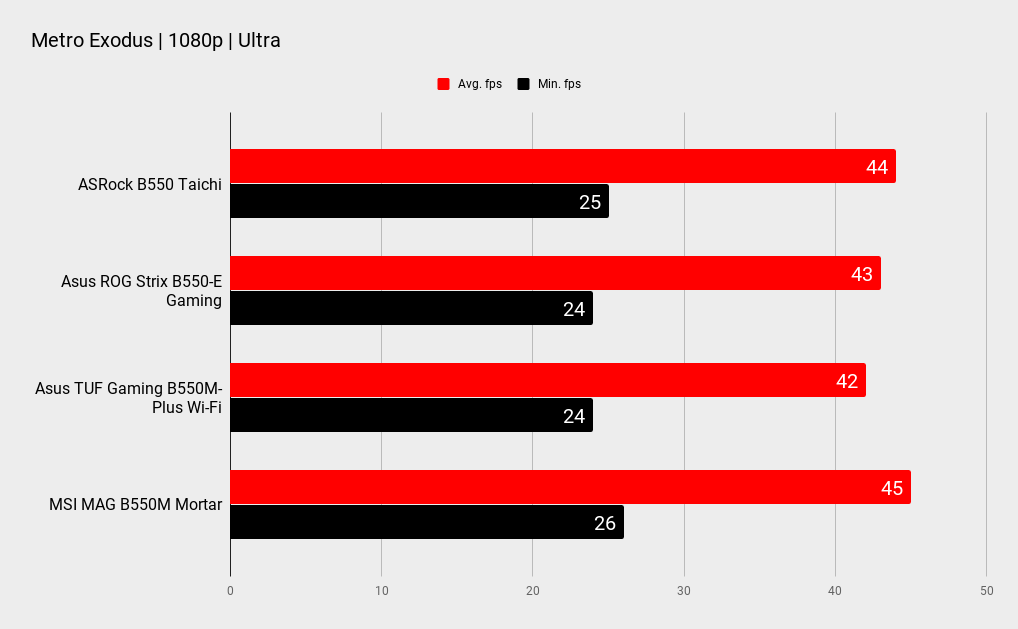
Hardware performance
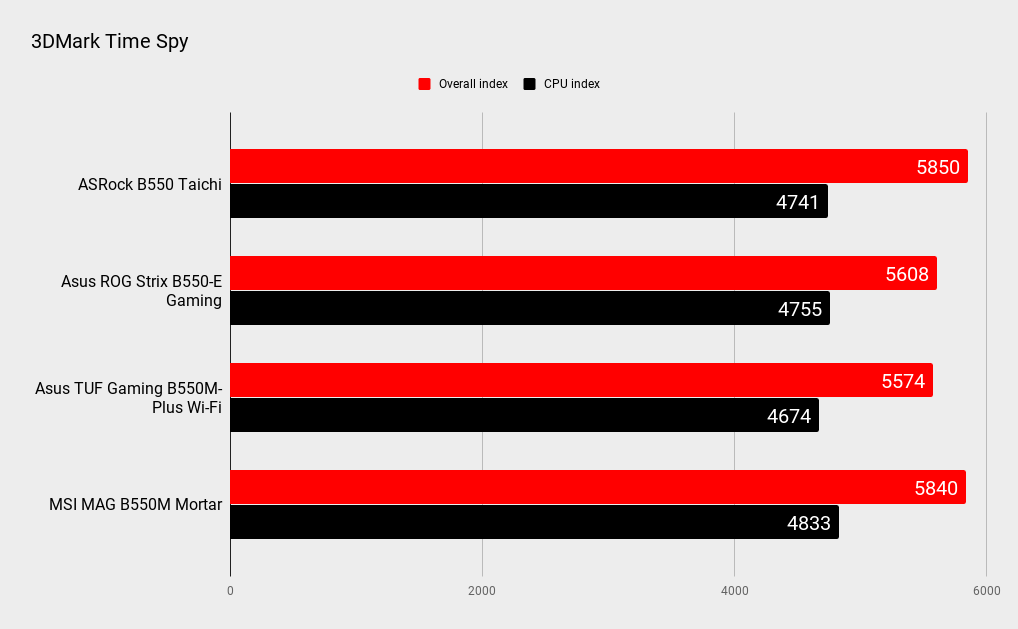
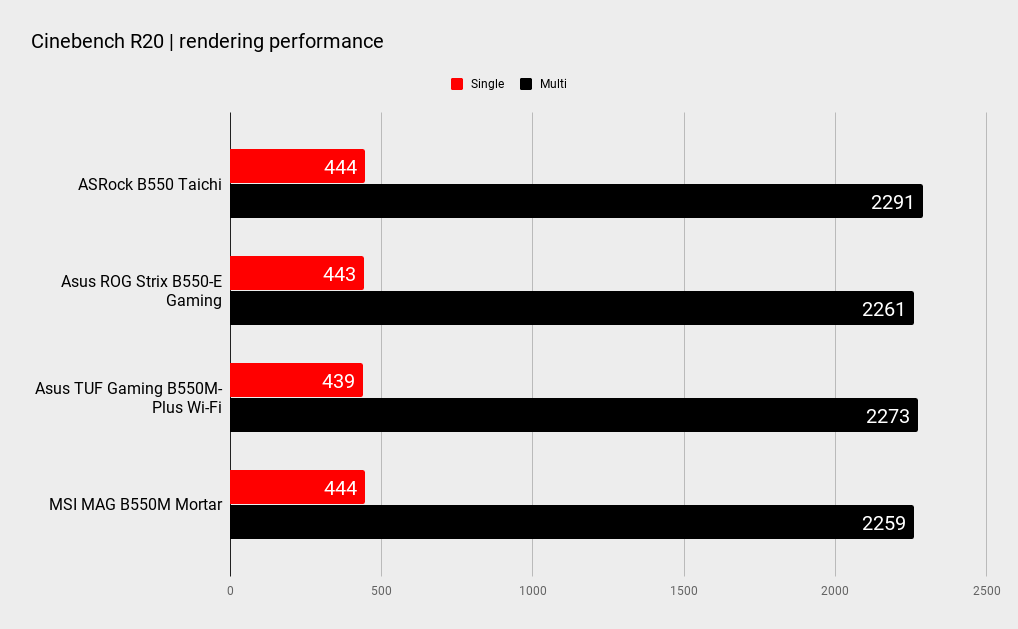
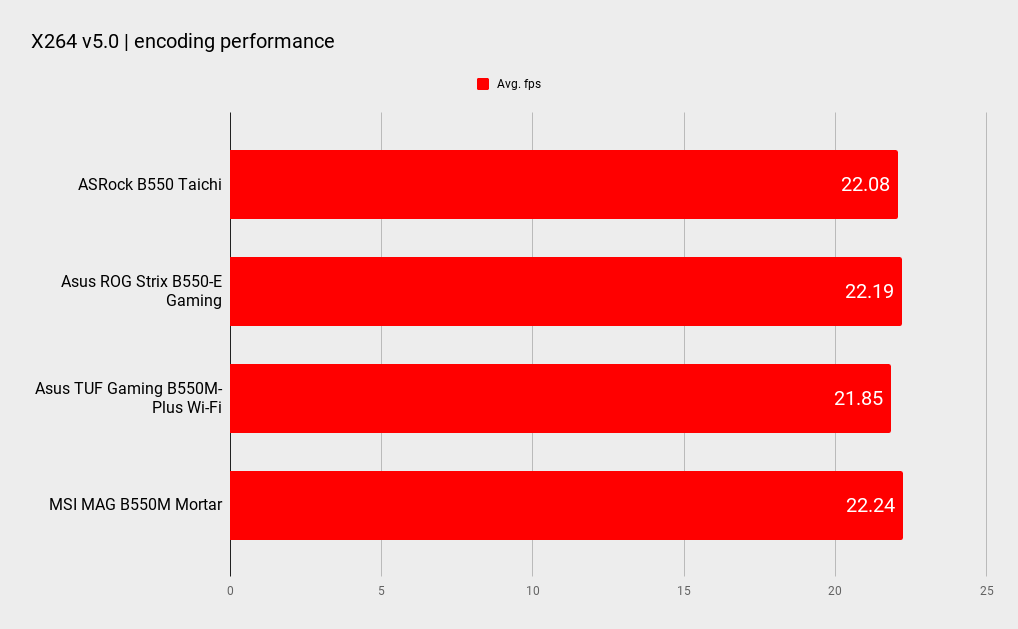
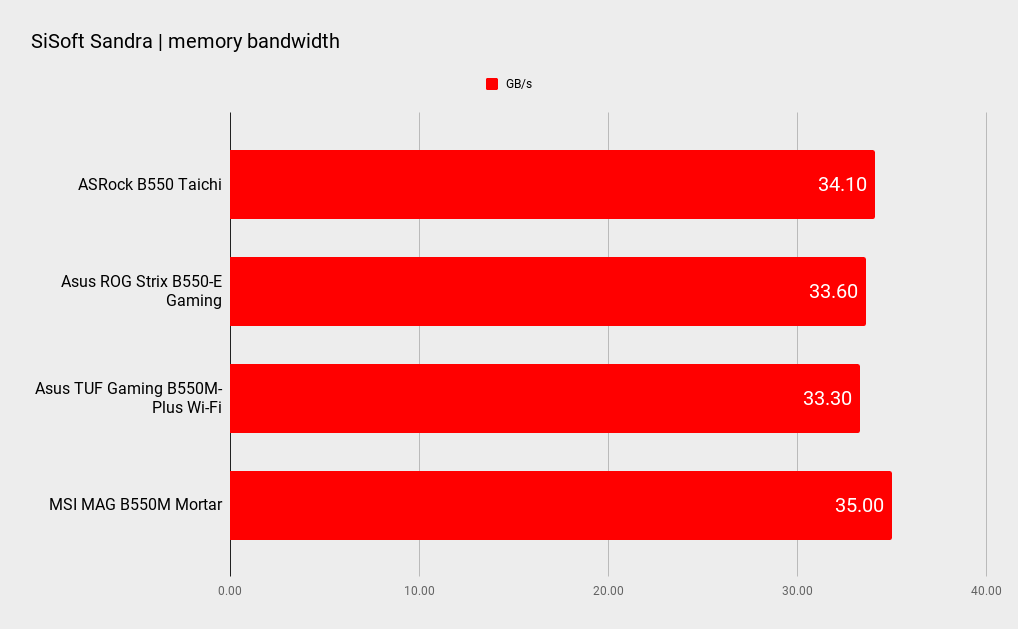
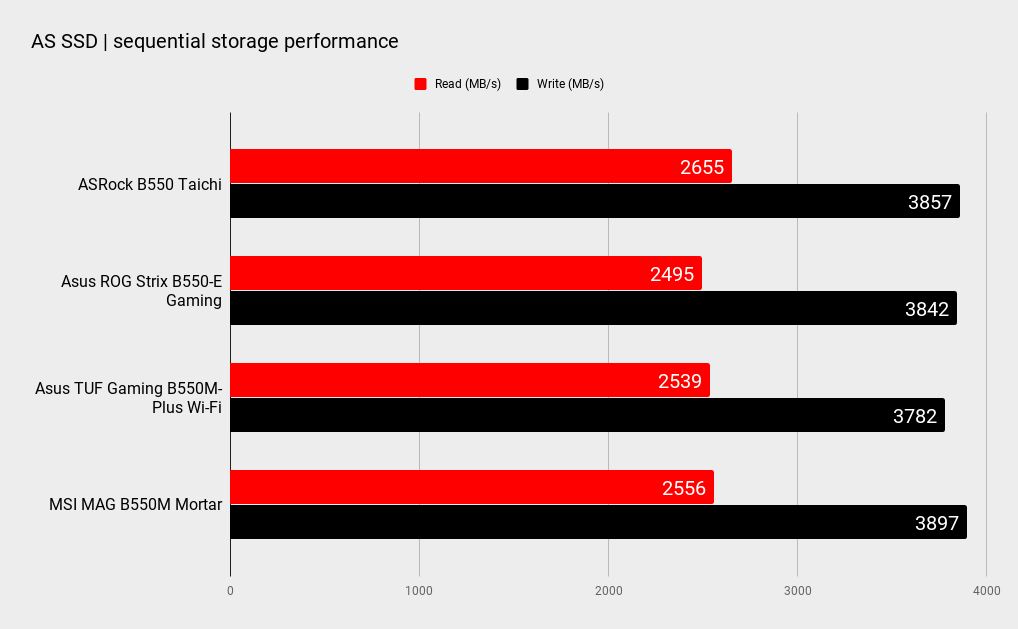
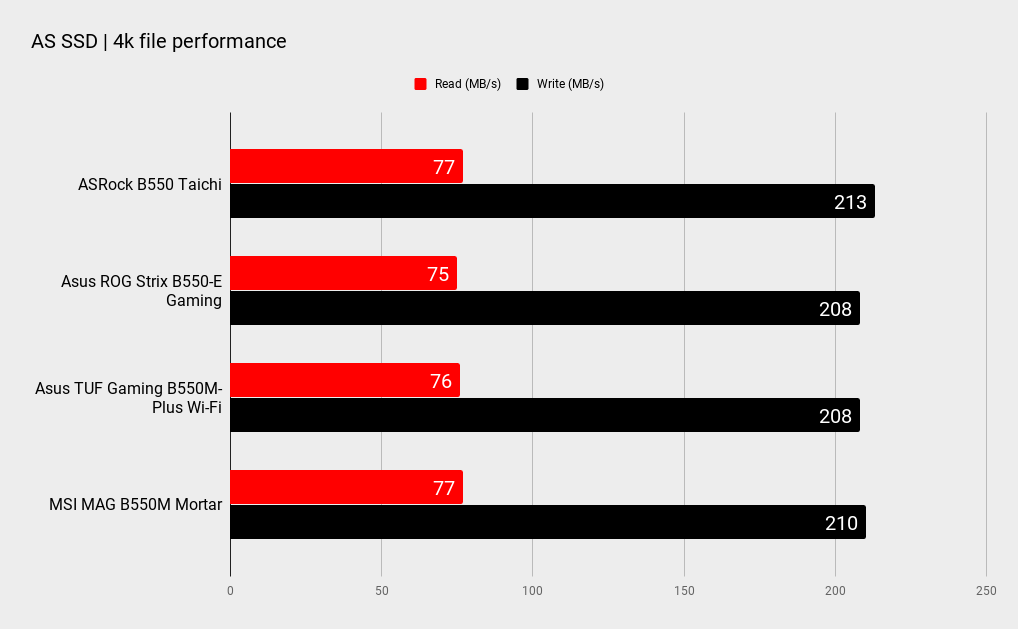
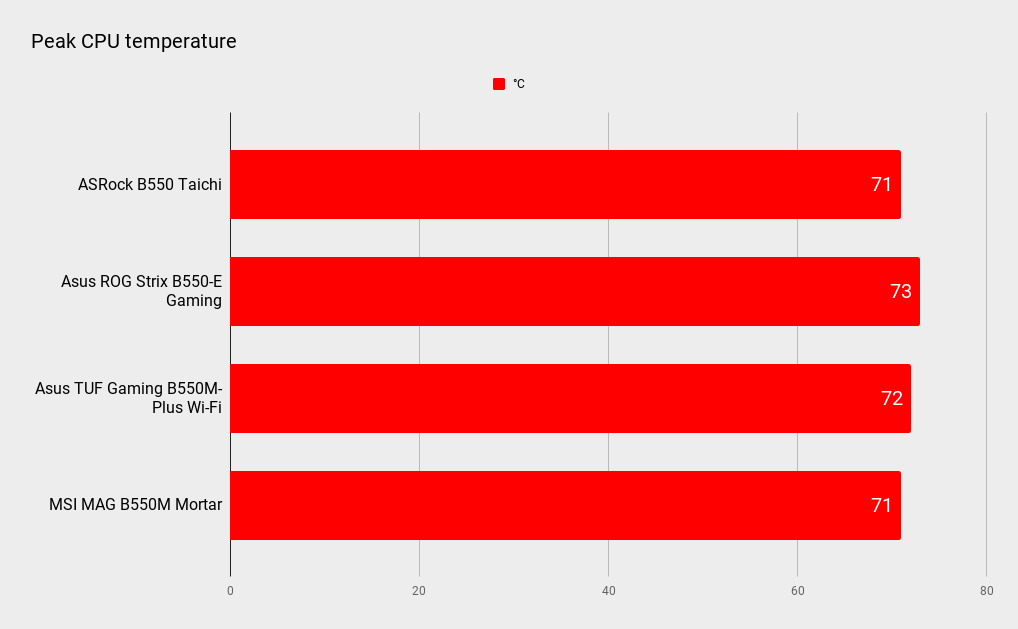
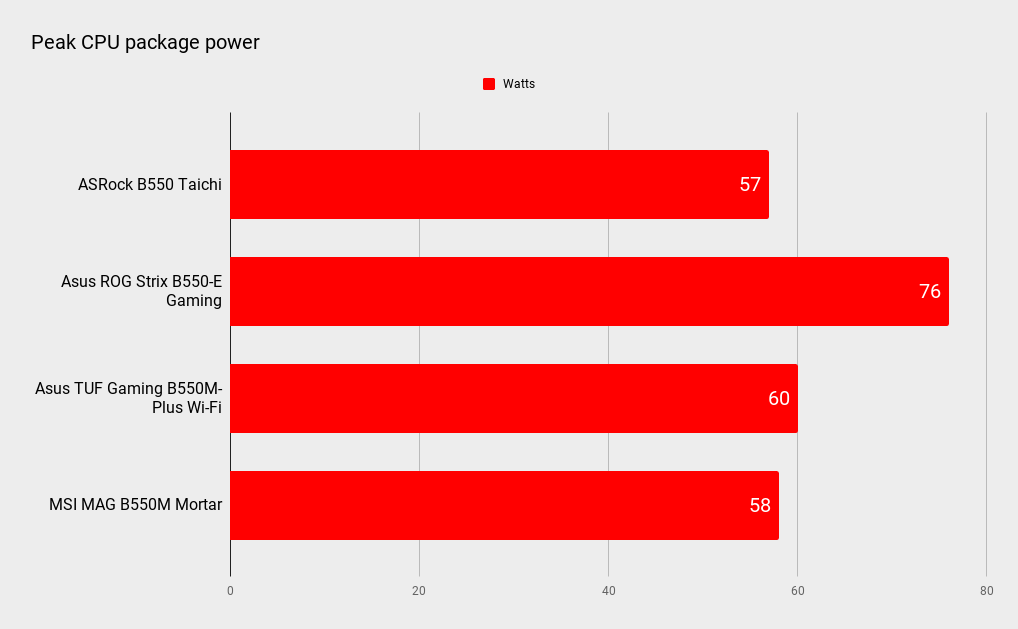
CPU - AMD Ryzen 3 3100
Memory - 16GB HyperX DDR4-3000
GPU - MSI GTX 1070 GamingX
Storage - 1TB Addlink S90
PSU - Phantec 1000W
As for actual performance at stock clocks, the ASRock B550 Taichi puts out very nice numbers. Despite claims of support for up to DDR4-5200 it mirrored the other B550 we’ve tested of late in not fancying more than 2,866MHz from our DDR4 3200 HyperX Predator DIMMs. No matter, the Taichi was still quicker at stock clocks than two of the other three B550 boards we’ve benchmarked of late, the MSI Mortar remaining at the top of the pile in that regard.
When it comes to overclocking, the picture is a bit more complicated. In extremis, this is likely the most overclockable B550 we’ve seen. However, ASRock’s BIOS ties the manual CPU core frequency settings to those of the core voltage. Consequently, if you want to manually overclock the CPU, you must also hand tune the voltages.
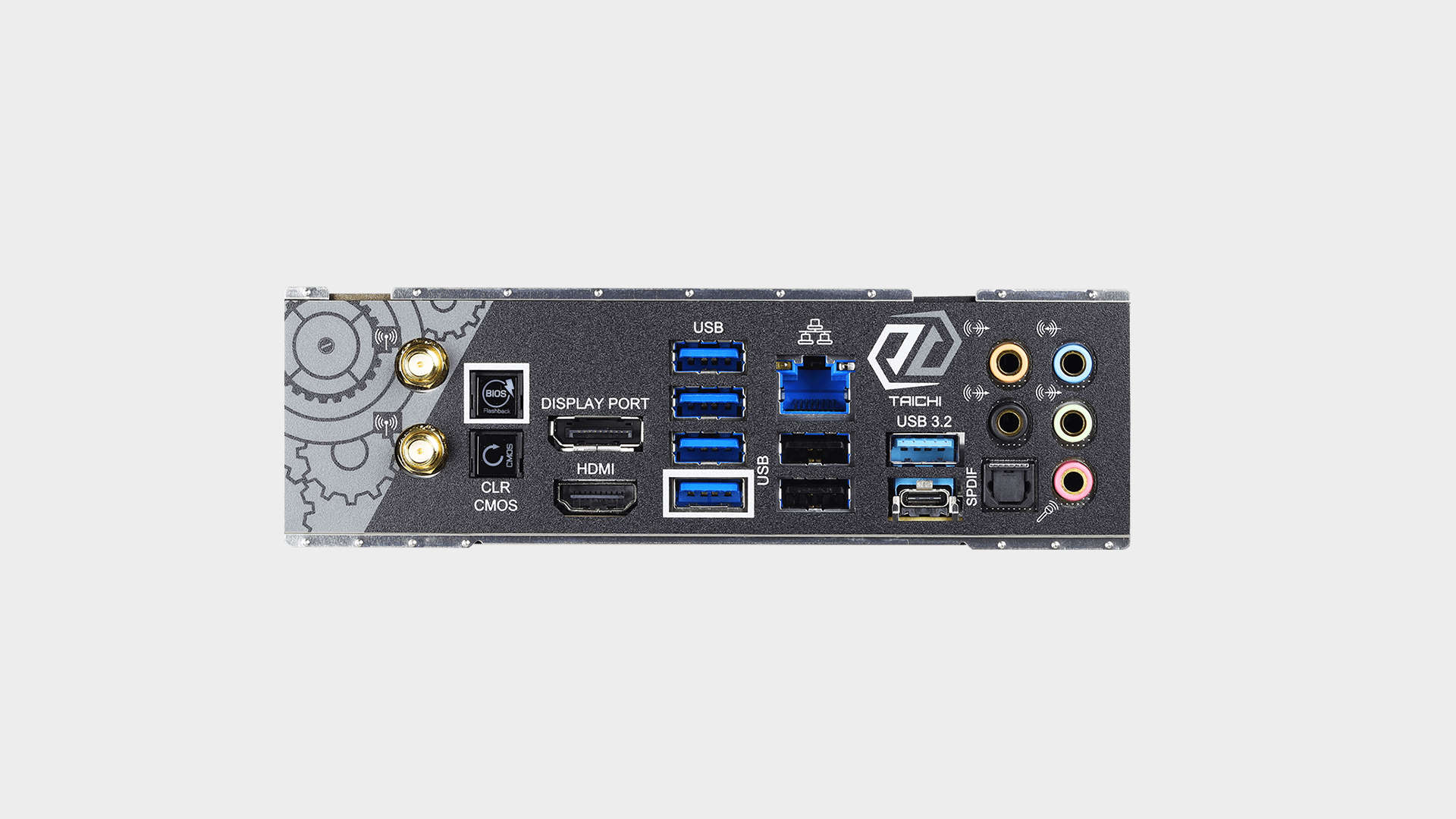
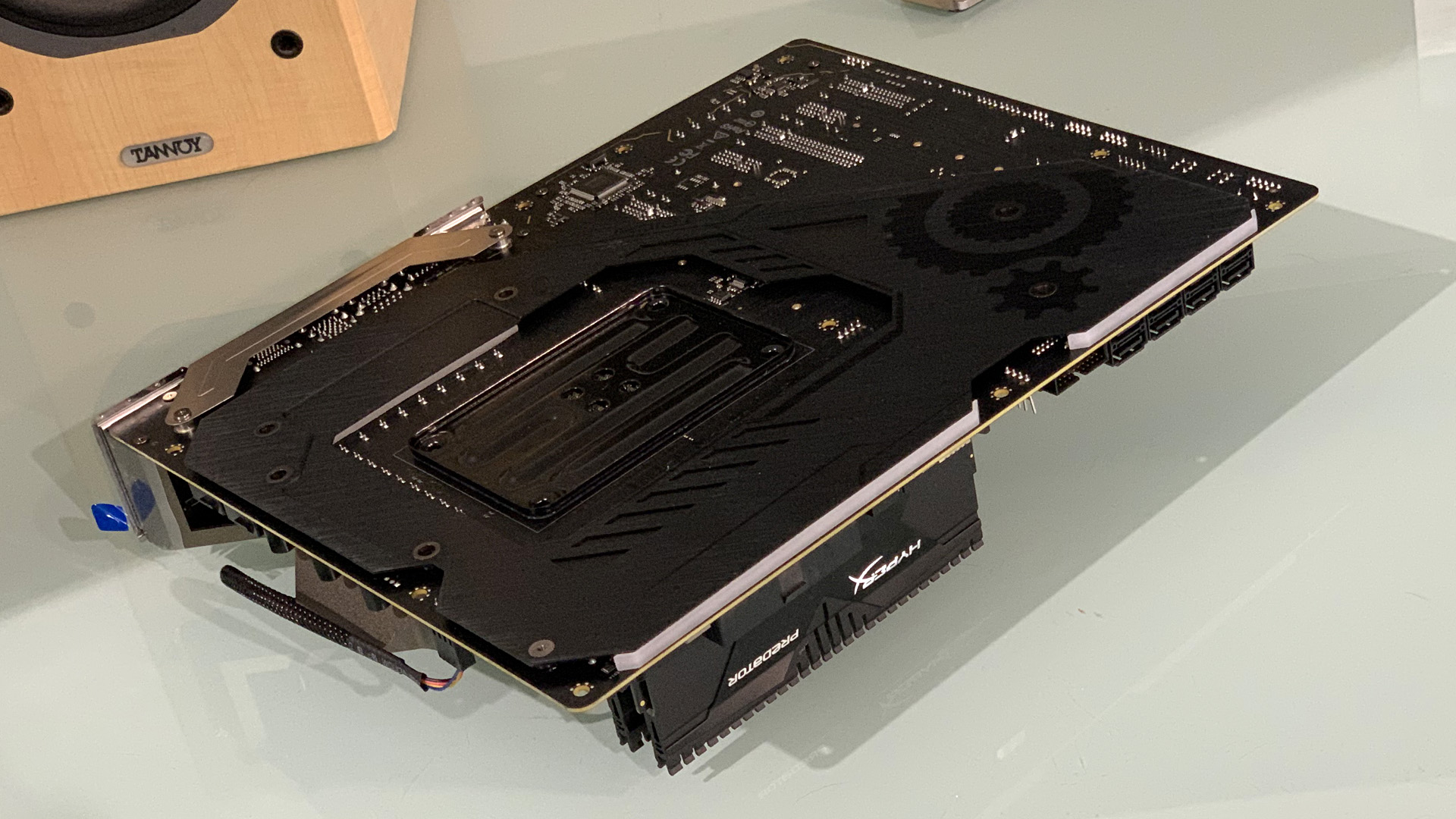
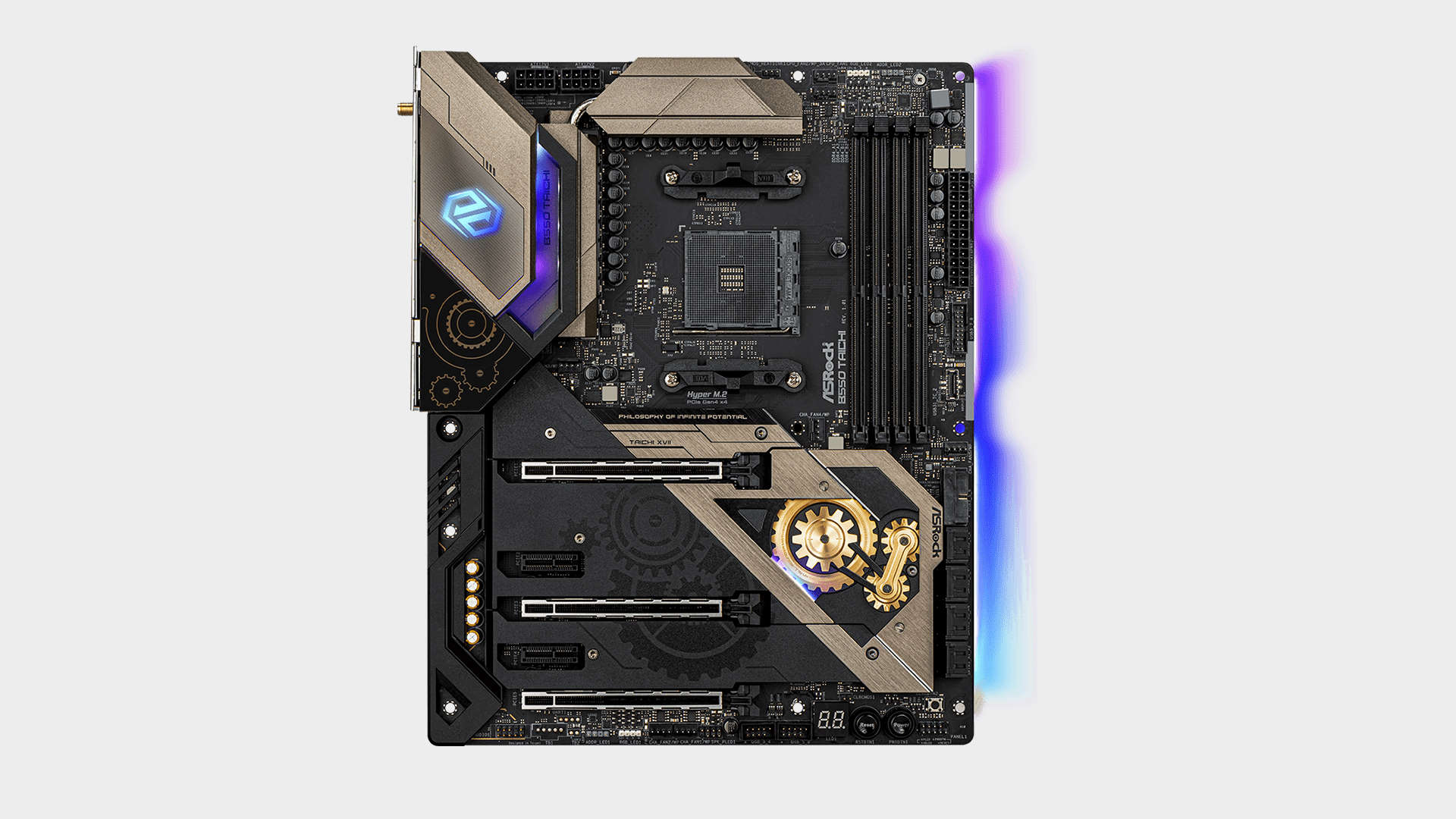
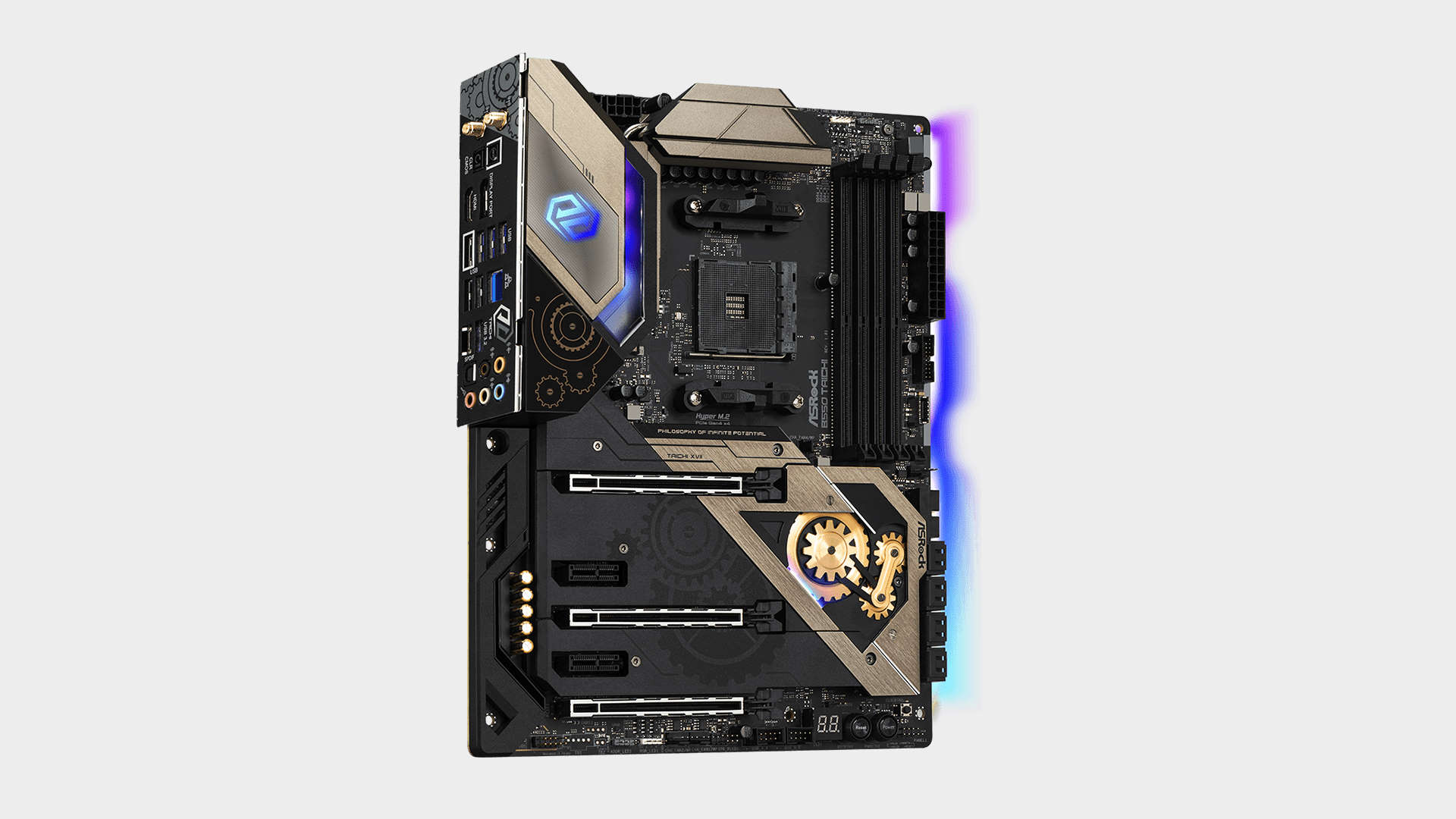
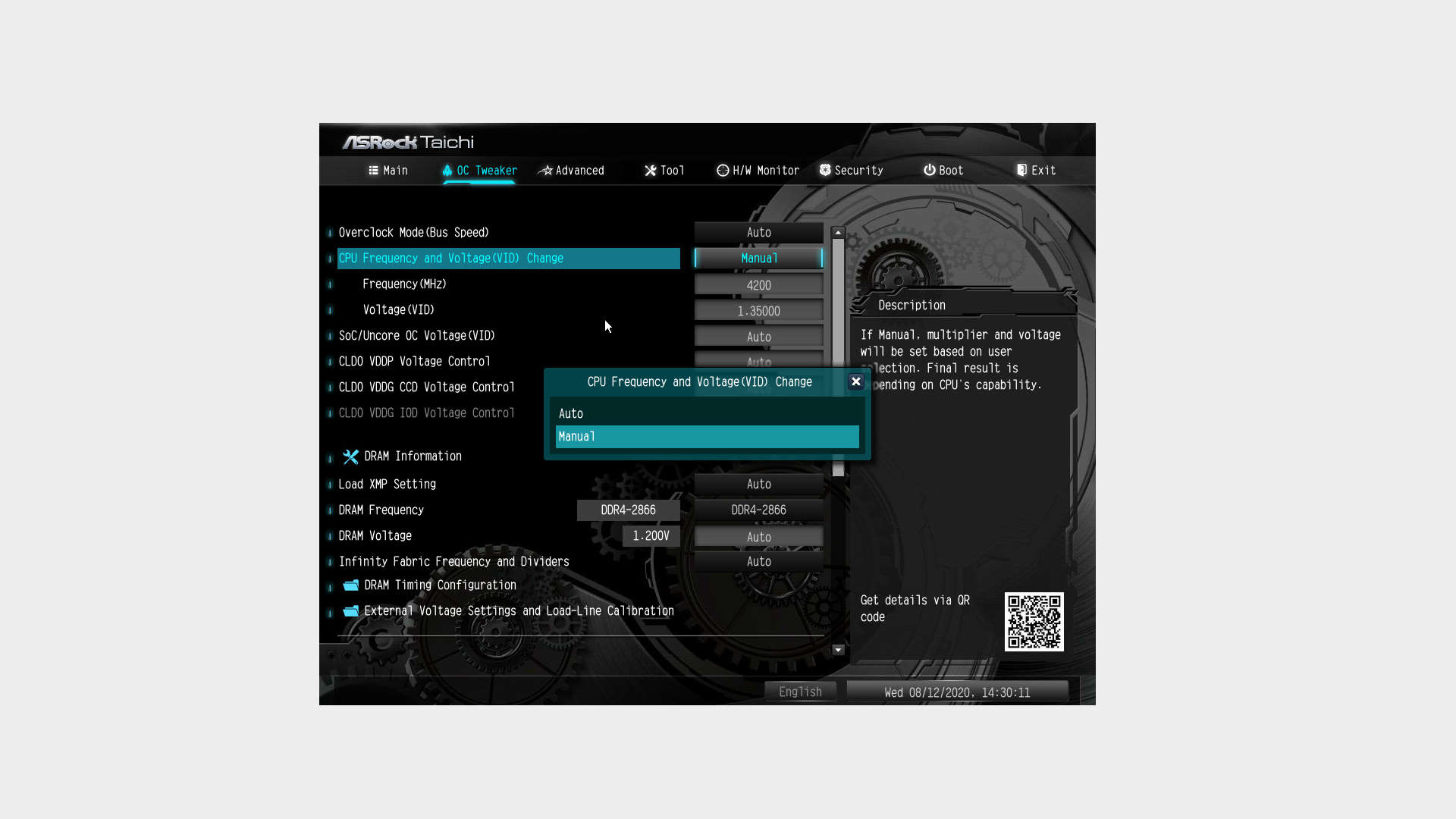
That makes for a much more complex overclocking routine. It will present the possibility, albeit slight, of a novice overclocker doing damage to the CPU. As it is, the Taichi tops out at the same 4.2GHz on all cores with hand tuned voltages as other B550 boards achieve with auto voltages.
So, it’s more overclocking effort for no discernable return.
Hardcore overclockers will of course appreciate the granularity, but we’d prefer to see at least the option to overclock while allowing the board to decide how aggressively to juice the CPU for the layman.
That aside, the ASRock Taichi B550 really is a pretty sweet board overall. We do slightly baulk at the very idea of paying so much for what is still a second-tier AMD chipset. But for most users, the limitations of the B550 chipset compared to the X570 will be entirely notional.
Megabucks for a B550 board this may be, but it's beautifully built and only suffers very slightly from the chipset's limitations compared to the X570 alternative.

Jeremy has been writing about technology and PCs since the 90nm Netburst era (Google it!) and enjoys nothing more than a serious dissertation on the finer points of monitor input lag and overshoot followed by a forensic examination of advanced lithography. Or maybe he just likes machines that go “ping!” He also has a thing for tennis and cars.
